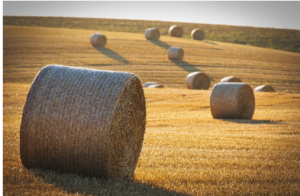Producers rely on baler twine and net wrap to hold hay and silage bales together. Therefore, having these essential plastic products available at all times is crucial to forage producers.
1. Durability
 Baler twine is constructed of durable materials that can meet the rigorous demands of baling hay and straw, helping farmers produce more hay per round or large square baler while also serving as a livestock fencing alternative.
Baler twine is constructed of durable materials that can meet the rigorous demands of baling hay and straw, helping farmers produce more hay per round or large square baler while also serving as a livestock fencing alternative.
Quality baler twine tractor supply is also treated to resist rot, mildew, rodents and insects. A range of options is available – poly and sisal are two materials made of plant material twisted together into twine. Sisal twine has the advantage of naturally biodegrading but costs more and has lower tensile strength than poly twine.
Baling twine should have high tensile strength to withstand rough handling and winter weather conditions, and high tensile strength is the determining factor here. A higher tensile strength indicates better quality baling twine, which should last through harsh handling conditions and harsh winter climates.
High tensile strength helps avoid knot slippage and breakage during use, and Coastal offers both natural sisal and synthetic options in various diameters, colours and strengths – with most made-in-USA options offering a guaranteed number of feet per carton for easier planning for season-long needs.
2. Recyclability
Baler twine is a sturdy string-like cord used to secure bales of material. While traditionally made from natural materials like sisal, modern baler twine also comes from manufactured synthetic materials. Balers use this twine to bundle materials like hay into large bales that can be stored or transported easily for later use. Balers sell on spools or rolls, so you can use them without worrying when packing hay balers full for later use.
Few people realise that baler twine can also be recycled despite its strong and durable composition, capable of supporting heavy loads without degrading over time.
So it is an excellent option for businesses that seek to minimise waste while using recycled material effectively, saving on costs and space while contributing to keeping our environment cleaner.
While baler twine tractor supply can provide many advantages, you must select one suitable to your needs. Look for something with high knot strength durable enough for use in baling equipment and being treated against rot, mildew and rodent infestation. Finally, it should be easy to work with and take up minimal storage space.
3. Ease of Use
Twine is used across agriculture, waste and recycling, construction, distribution and industrial processes – from baling to bundling materials for transport – making hard-wearing twine essential.
The key to any twine’s success lies in how it is used. Too brittle or stiff a twine won’t hold knots well and may break during use, while too soft a material won’t easily run through baling machines without needing special feed systems for feed purposes.
Premium quality baler twine has various strengths and sizes to meet different needs. Small square polypropylene twine is an ideal choice for all straw, hay and silage crops due to its high knot strength and guaranteed length; their use reduces costs by up to one-fourth.
4. Availability
Farmers know the value of baler twine as an indispensable tool in business operations. Baling twine ensures their baling machinery works at total capacity, harvesting more from their land and realising greater profits. Furthermore, having plenty of twine on hand can speed up tying processes to complete work faster.
While traditional sisal twine is still widely used for baling purposes, companies have begun experimenting with artificial materials as alternatives. Most modern baler twine is composed of polypropylene plastic which binds more efficiently than sisal and better withstanding weather elements. Baler twine comes in different strengths and colours to meet various applications.
Baling twine is used for baling machinery and as an indispensable material in horse barns and stables worldwide. Many keep a roll in their tack room for emergency repairs or use it to create lead ropes for trail rides. Remember that horses may ingest any leftover baling twine, so ensure it is disposed of appropriately!